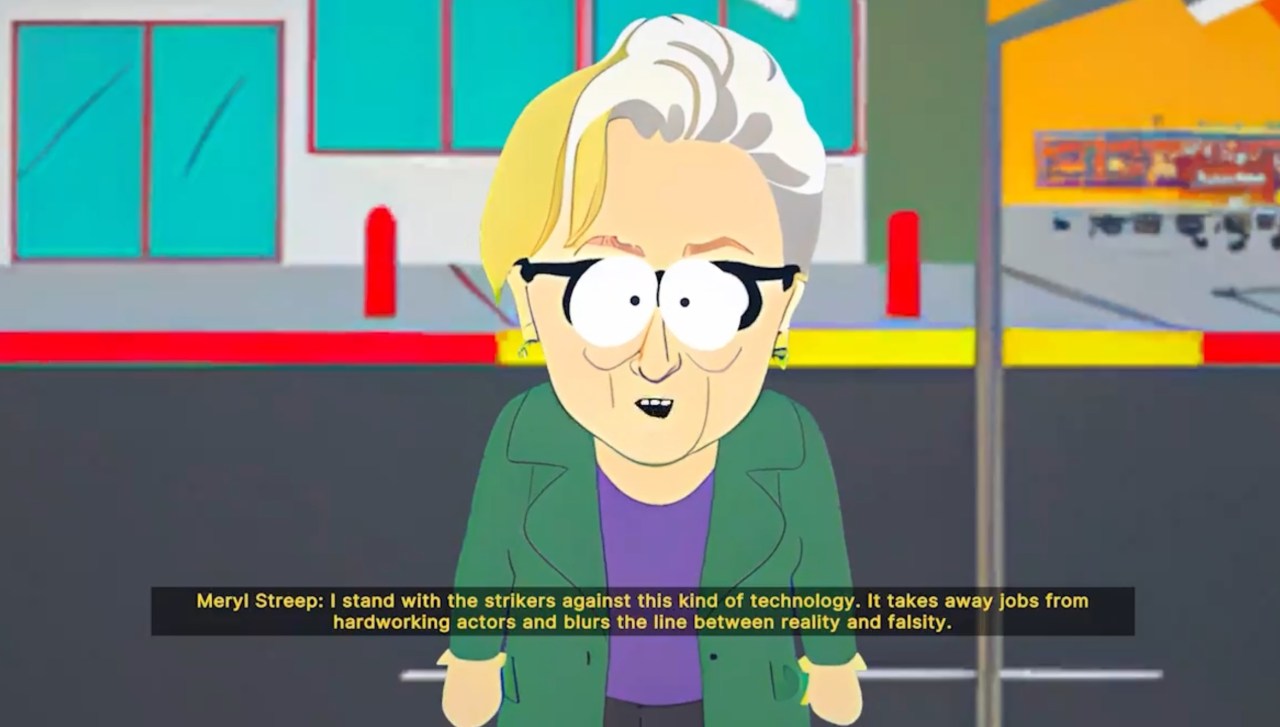As the film and television industry grapples with profound changes, the emergence of artificial intelligence poses both exciting possibilities and formidable challenges. This paradox has been brought to the forefront recently by Fable Studios, an ambitious tech startup that showcased an AI-generated, full-length episode of “South Park.” This audacious move comes at an especially contentious time marked by a major writers’ strike, raising questions about the role of AI in the creative landscape. Is it innovation, or is it an affront to the very essence of artistry?
What Happened?
Fable Studios declared its project via social media, proclaiming the release of a paper called “Generative TV Showrunner Agents,” coupled with a complete, albeit fictional, episode that features Cartman experimenting with deepfake technology. The episode, while demonstrating advanced capabilities in AI production, leaves much to discuss regarding its ethical implications.
The Technological Marvel Behind AI-Generated Media
To assess the demonstration of this technology, it is crucial to understand its mechanics. According to Fable, the episode holds a structured narrative architecture, complete with character development and even celebrity cameos. However, the brilliance of the technology isn’t the only takeaway here. The platform provides an opportunity to showcase the mechanics behind AI’s creative capabilities, which include:
- Automated Writing and Dialogue Generation
- Character Animation and Voice Synthesis
- Edit and Producing Capabilities
- Collaborative Simulations for Storyboarding
This technology appears groundbreaking, yet it also raises alarms among industry professionals. Many fear that as these capabilities grow, they could undermine the value of human creativity and lead to a shift in how stories are created and told.
Voices from the Strike: A Community in Turmoil
While Fable touts its innovation as a step for labor negotiations, many writers, directors, and other creatives on strike perceive it differently. They contend that AI’s increasing involvement may spell disaster for human contributors within an industry already facing economic challenges. Eduardo Saatchi, CEO of Fable, argues that publicizing such technology creates leverage for unions during negotiations, enabling stronger protections against the unauthorized use of AI tools. Yet, does this sentiment resonate with those directly affected?
A resounding “no” likely echoes among strikers, as the demonstration of AI technologies prompts fear of further erosion of creative jobs. It emphasizes the need for societally driven frameworks rather than technological unilateralism.
The Ethical Quandary of AI in Entertainment
Fundamentally, the debate touches on one essential question: just because we can develop followers of human creativity, should we? The portrayal of AI-generated content risks creating an industry that values cost efficiency over the artistic soul. If shows are birthed from a digital code instead of human experiences, will they retain the heart that keeps audiences engaged?
Moreover, the authenticity of the narrative poses critical questions. Would audiences appreciate fictitious versions of beloved characters when crafted outside of the human experience? Fable’s endeavors seem provocative, entwined with the transformative vision of what entertainment could become. However, the industry’s rejection could very well pivot the future of such technologies.
Potential Pathways Forward
The reality is that AI isn’t going anywhere. As it continues to evolve, various stakeholders must engage proactively to shape its integration into entertainment. Here are a few pathways that could be explored:
- Establishing Clear Guidelines: Stakeholders should develop comprehensive frameworks that protect creative rights and ensure AI acts as an adjunct to, rather than a replacement for, human talent.
- Encouraging Collaboration: Rather than viewing AI as an adversarial force, industry leaders can explore partnerships that foster innovation while retaining the core human element.
- Promoting Ethical Standards: Creating an ethical approach to AI’s use in creative spaces is essential in assuaging fears and building trust within the community.
Conclusion: Charting the Unknown
The audacity of Fable Studios serves as both a fascinating technological showcase and a precarious brush with ethical dilemmas. As the industry seeks to navigate through tumultuous waters, it is paramount that AI’s role is thoughtfully considered rather than hastily implemented. Only through collaboration, communication, and ethical foresight can AI be used to augment creativity rather than overshadow it.
Advancements in technology, like those pursued by Fable, undoubtedly hold promises and perils. It remains to be seen how they will blend into the fabric of creativity in Hollywood and beyond.
At fxis.ai, we believe that such advancements are crucial for the future of AI, as they enable more comprehensive and effective solutions. Our team is continually exploring new methodologies to push the envelope in artificial intelligence, ensuring that our clients benefit from the latest technological innovations.
For more insights, updates, or to collaborate on AI development projects, stay connected with fxis.ai.

